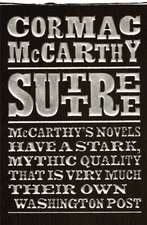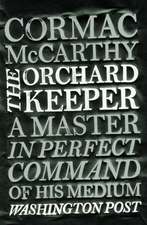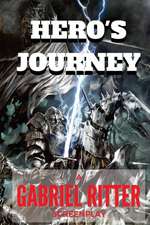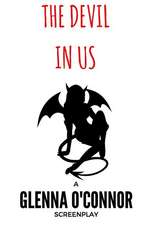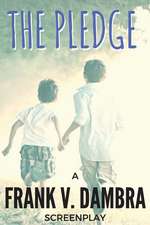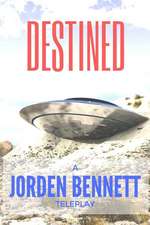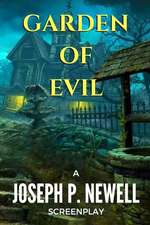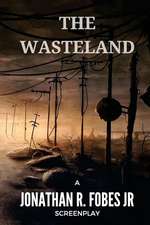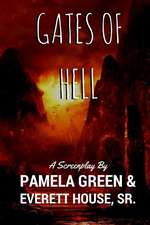The Gardener's Son
Autor Cormac McCarthyen Limba Engleză Paperback – 8 dec 2014
Set in Graniteville, South Carolina, The Gardener’s Son is a tale of privilege and hardship, animosity and vengeance brought to life through two families: the Greggs, the wealthy owners of a cotton mill, and their employees the McEvoys, a father and son beset by misfortune. After Robert McEvoy loses his leg in an accident—rumored to have been caused by his nemesis James Gregg, the son of the mill’s founder—the angry and bitter young man deserts his job and family.
Two years later, Robert returns. His mother is dying, and his father, the mill’s gardener, is confined indoors working the factory line. These intertwined events stoke the slow burning rage McEvoy has long carried, a fury that erupts in a terrible act of violence that ultimately consumes the Gregg family and his own.
Made into an acclaimed film broadcast on PBS in 1976, The Gardener’s Son received two Emmy Award nominations and was screened at the Berlin and Edinburgh Film Festivals.
| Toate formatele și edițiile | Preț | Express |
|---|---|---|
| Paperback (2) | 36.99 lei 24 ore | |
| Pan Macmillan – 4 dec 2014 | 36.99 lei 24 ore | |
| HarperCollins Publishers – 8 dec 2014 | 88.83 lei 3-5 săpt. |
Preț: 88.83 lei
Nou
16.100€ • 18.46$ • 14.28£
Carte disponibilă
Livrare economică 01-15 aprilie
Specificații
ISBN-10: 0062287540
Pagini: 112
Dimensiuni: 135 x 203 x 6 mm
Greutate: 0.08 kg
Editura: HarperCollins Publishers
Colecția Ecco
Textul de pe ultima copertă
In the spring of 1975 the film director Richard Pearce approached Cormac McCarthy with a screenplay idea. Though already a widely acclaimed novelist, the author of such modern classics as The Orchard Keeper and Child of God, McCarthy had never before written a screenplay. Using a few photographs in the footnotes to a 1928 biography of a famous pre–Civil War industrialist as inspiration, McCarthy and Pearce roamed the mill towns of the South researching their subject. A year later McCarthy finished The Gardener's Son, a taut, riveting drama of impotence, rage, and violence spanning two generations of mill owners and workers, fathers and sons, during the rise and fall of one of America's most bizarre utopian industrial experiments. Produced as a two-hour film and broadcast on PBS in 1976, The Gardener's Son received two Emmy Award nominations and was shown at the Berlin and Edinburgh Film Festivals.
Set in Graniteville, South Carolina, The Gardener's Son is the tale of two families: the wealthy Greggs, who own and operate the local cotton mill, and the McEvoys, a family of mill workers beset by misfortune. The action opens as Robert McEvoy, a young mill worker, is having his leg amputated after an accident rumored to have been caused by James Gregg, the son of the mill's founder. Crippled and consumed by bitterness, McEvoy deserts both his job and his family.
Returning two years later at the news of his mother's terminal illness, McEvoy arrives only to confront the grave diggers preparing her final resting place. His father, the mill's gardener, is now working on the factory line, the gardens forgotten. These proceedings stoke the slow-burning rage McEvoy carries within him, a fury that will ultimately consume both families.
Notă biografică
Descriere
The original screenplay, The Gardener's Son, is the tale of two families: the wealthy Greggs, who own the local cotton mill, and the McEvoys, a family of mill workers beset by misfortune.
Two years ago, Robert McEvoy was involved in an accident that led to the amputation of his leg. Consumed by bitterness and anger, he quit his job at the mill and fled. Now, news of his mother's terminal illness brings Robert home. What he finds on his return stokes the slow burning rage he carries within him, a fury that ultimately consumes both the McEvoys and the Greggs.
This taut, riveting drama was Cormac McCarthy's first written screenplay. Directed by Richard Pearce, it was produced as a two-hour film in 1976 and received two Emmy Award nominations. This is the first UK publication of the film script in book form.


